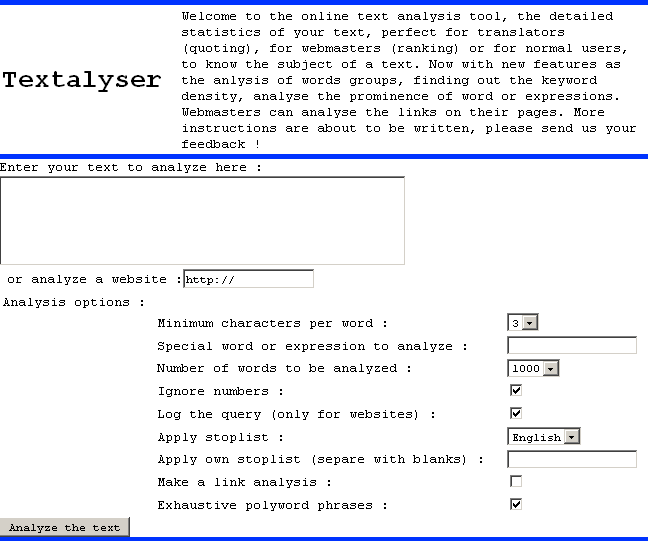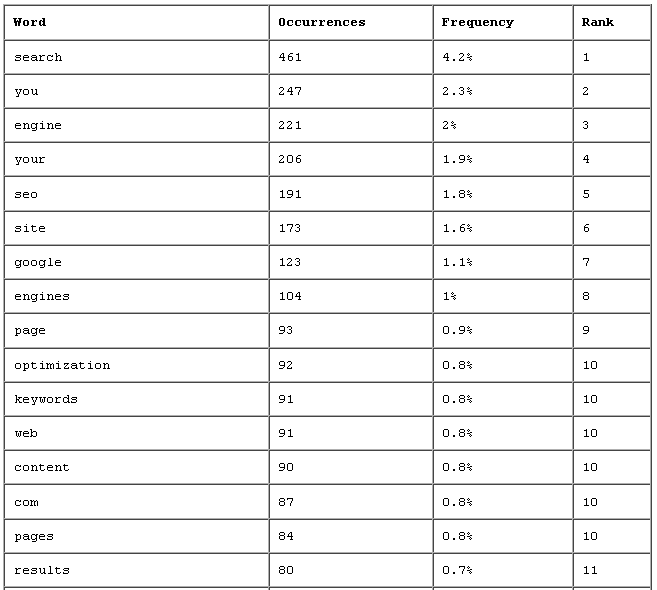14
Feb 11
Great Free SEO Tools: Textalyser
 While keyword density is important (regardless of what you’ve heard to the contrary), it’s not enough to simply say the keyword you want to rank for many times, or even better, the the proper number of times.
While keyword density is important (regardless of what you’ve heard to the contrary), it’s not enough to simply say the keyword you want to rank for many times, or even better, the the proper number of times.
Keyword Density tools like Bruce Clay’s can help you figure out how to do that, but it’s important to be engaging to your end-users, and to look natural to search engine algorithms. Peppering related keywords into your writing can help with both of these goals.
There is a very simple way to figure out what related words you should be using in your content – simply take the top 3-5 web pages that are ranking highest for the term you want to rank for, and paste their text into a free tool called Textalyser.
Textalyser calculates some interesting things like reading level, etc., but the most useful feature is the ability to display all words found in what you pasted, by frequency. If you paste the text for a bunch of web pages in all at once, it can show you what words are most common across all those pages. You can then go through the list and cherry-pick interesting terms to add to your content; you might even get some good keyword ideas about what other content you could create in the topic area. So, for example, I pasted in the entire text of the top four results for the query [search engine optimization] – a Wikipedia entry on it, some Google guidance on SEO, an SEOMoz web page, and a Bruce Clay web page. Don’t worry about analyzing them separately, just mash all of the text of the web pages you want to analyze into the input dialog together, Textalyser can analyze a pretty large set of text all at once.
From the results, you can of course see plural and stemmed versions of the individual terms – always good to use some of those – but a number of other related terms pop out: [site], [page], [keywords], [content], [results]. Hey, what do you know, SEO is actually about results too! 😉
You can go crazy with this stuff (trying to make sure you’re saying the related words the right number of times and so on) but don’t obsess about it. Focus on getting the keyword density right for your primary term and use the related word ideas to make the content more engaging – in most cases it will come out fine. At some point you really do have to do what Matt Cutts continually preaches and “just focus on making great content for your users” – optimization isn’t everything after all – the content has to be decent, readable, and informative as well. The related words should help you rank though; if you believe in Latent Semantic Analysis, Latent Dirichlet Allocation, or whatever other brand of search engine voodoo you personally subscribe to – it makes sense that they would help.
Textalyser is one of the rare free tools that does some really heavy lifting for you and is well worth checking out.




Leave a Reply